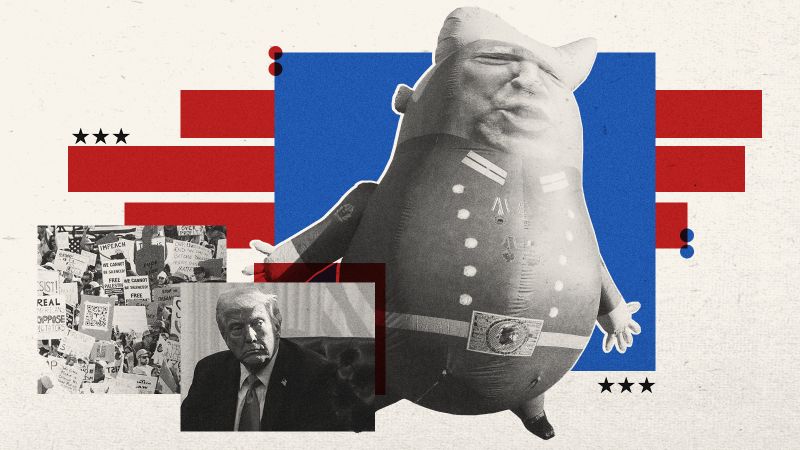Haiti's Descent: When Chaos Meets Governance - A Nation on the Brink
Politics
2025-04-29 07:15:30Content

Haiti stands on the brink of chaos as a powerful alliance of criminal gangs tightens its grip around Port-au-Prince, threatening to overwhelm the nation's fragile capital. The city is now engulfed in an unprecedented wave of violence that has pushed the country to the very edge of total lawlessness.
Armed gang coalitions are rapidly advancing, creating a suffocating stranglehold on Port-au-Prince's streets. The mounting tension and widespread unrest have transformed the city into a dangerous battleground, where ordinary citizens are caught in the crossfire of escalating criminal power struggles.
As the gangs close in, Haiti faces its most critical moment in recent history, with the potential collapse of civil order looming large. The situation grows more dire by the hour, leaving residents in a state of fear and uncertainty about their immediate future and the fate of their beloved nation.
Chaos Unfolding: Haiti's Descent into Criminal Insurgency
In the heart of the Caribbean, a nation teeters on the brink of complete societal collapse. Haiti, long plagued by political instability and economic hardship, now faces an unprecedented threat from a sophisticated network of criminal gangs poised to seize control of its capital city, Port-au-Prince.When Criminals Become Conquerors: The Unraveling of Haiti's Fragile Governance
The Anatomy of Urban Warfare
The streets of Port-au-Prince have transformed into a complex battlefield where traditional power structures crumble beneath the weight of organized criminal networks. These gangs, far from being disorganized groups of opportunists, represent a highly strategic force with intricate command structures and territorial ambitions. Their methodical approach to urban conquest reveals a disturbing level of strategic planning that goes beyond mere criminal activity. Intelligence reports suggest these criminal coalitions have systematically infiltrated key municipal infrastructures, undermining government institutions from within. Their tactics involve a multi-pronged approach: economic strangulation, strategic territorial expansion, and psychological warfare designed to erode public confidence in existing governmental systems.Geopolitical Implications of Haiti's Crisis
The potential fall of Port-au-Prince represents more than a localized conflict; it signals a profound geopolitical transformation with regional and international ramifications. Neighboring Caribbean nations watch with growing apprehension as Haiti's institutional framework disintegrates, creating a potential power vacuum that could destabilize the entire region. Diplomatic sources indicate that international organizations are struggling to formulate an effective intervention strategy. The complexity of Haiti's crisis defies traditional peacekeeping models, requiring a nuanced approach that addresses root causes of systemic dysfunction.Social Fabric Under Siege
Beyond the immediate territorial conflict, Haiti's social infrastructure faces unprecedented strain. Ordinary citizens find themselves caught in a nightmarish scenario where criminal entities increasingly dictate daily life. Schools, healthcare systems, and economic activities have been dramatically disrupted, pushing communities to the absolute limits of survival. Humanitarian workers report escalating humanitarian challenges, with basic services becoming increasingly unreliable. The psychological toll on citizens living under constant threat of violence cannot be overstated, creating generational trauma that will likely persist long after the immediate conflict subsides.Economic Devastation and Survival Strategies
The economic landscape of Haiti has been fundamentally altered by this criminal insurgency. Traditional economic channels have been systematically dismantled, forcing citizens to develop innovative survival mechanisms. Local markets, once vibrant centers of community exchange, now operate under the shadow of gang control, with every transaction potentially fraught with danger. International economic analysts suggest that the current crisis could trigger a long-term economic regression, potentially setting Haiti's development back by decades. The cost of reconstruction, should stability be restored, would require unprecedented international investment and strategic reconstruction efforts.Technology and Resistance
Interestingly, technology has emerged as an unexpected tool of resistance. Citizens and grassroots organizations are leveraging digital platforms to document, communicate, and potentially counteract gang activities. Social media and encrypted communication channels have become critical lifelines for communities seeking to maintain some semblance of collective resilience. Digital documentation of gang activities has also provided valuable intelligence for potential future prosecutions and international intervention strategies, transforming technology into a potential weapon against organized criminal networks.RELATED NEWS
Politics

From Tesla Fanboy to Turning Point: How One Contractor's Musk Obsession Sparked a Radical Business Pivot
2025-04-27 10:01:24
Politics

Snapshots of Controversy: How Hezbollah Images Triggered a Rhode Island Doctor's Unexpected Deportation
2025-03-17 20:27:29






